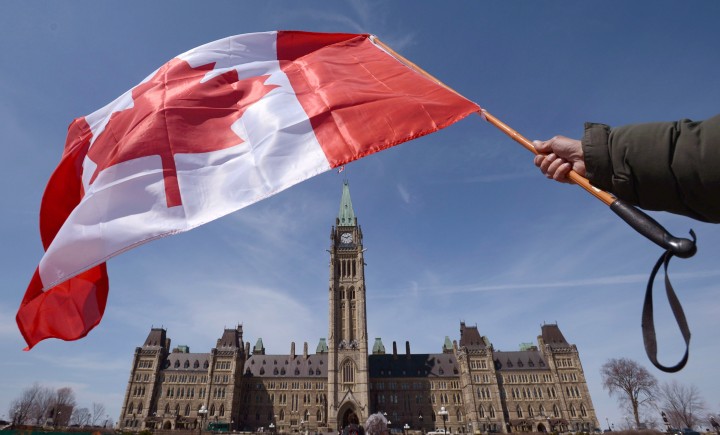TORONTO – Canadians are the sixth happiest people in the world, according to a new United Nations report spearheaded by a Vancouver-based scientist.

That’s because of a string of factors – life expectancy, social support, generosity, freedom to make life choices, economy and perceptions of corruption.
Under those criteria, Australia and Canada are happier than the United States and the United Kingdom. Greeks, Italians and even the Japanese grew unhappy, meanwhile, Denmark is the happiest country in the world, while a cluster of African nations – Rwanda, Burundi and Togo – rank at the bottom of 156 countries.
Could happiness be a factor in measuring a country’s success?
The report’s authors – co-led by University of British Columbia professor emeritus Dr. John Helliwell – are calling on world leaders and policy analysts to consider happiness as a key component to assessing the growth of a nation.
“People need something broader than purely economic measures to show the quality of life in their communities, and what better than people’s own assessments of their quality of life?” Helliwell told Global News.
“Happy people live longer, are more productive, earn more, and are also better citizens,” the report says. It warns that while Western countries are thriving in some sectors, their citizens are plagued with mental health issues, or what the report calls the “single most important determinant of whether a person is happy or not.”
Read more: Young Minds: Stress, anxiety plaguing Canadian youth
While each country may have its own set of challenges, the criteria the survey measured are “important for all countries, rich or poor,” Helliwell said.
Winners and losers
It’s the second annual World Happiness Report issued by the United Nations. Overall, people are happier, with growth in good feelings in 50 countries, while worsening in another 41.
The study was based on the past five years. In some cases, the gains and losses are obvious:
– Four countries badly hit by the Eurozone financial crisis – Portugal, Italy, Spain and Greece – saw dramatic drops in their happiness.
– Because social support increased in some parts of sub-Saharan Africa and Southeast Asia, countries such as Thailand and Cambodia, and Angola and Zimbabwe. These people also felt like they had more freedom to make life choices. Still, these clusters of countries are still relatively unhappy even though they take home the “most improved” awards.
– Citizens’ worry about corruption decreased in Latin America and Eastern Europe.
– Egypt, with its years of political unrest, saw the steepest decline in its country’s happiness, followed by Greece and Myanmar.
– The United States, troubled by its economy and unemployment rate, slipped in its happiness. It ranks 17th, behind Mexico.
Read more: EU predicts eurozone recession to continue in 2013
Helliwell notes that these shifts in individual country happiness provide a glimpse into unique circumstances some countries are under.
“It is both interesting and surprising that there are so many significant gainers and losers – the explanations differ in each case, and show the variety of experiences around the globe,” he said.
Europe is literally divided in half – with countries thriving while their neighbours trudge through the rough economic times.
Read more: Euro official: Greece to need more aid after 2014
In a nutshell, Northern European countries – Denmark, Norway, Switzerland, Holland and Sweden – dominated the top 5 in global happiness. But on the other end were the Mediterranean countries.
Tracking national happiness
Tracking “gross national happiness” became the UN’s priority in 2010 when the notion was first introduced.
“The word ‘happiness’ is not used lightly. Happiness is an aspiration of every human being and can also be a measure of social progress,” the report reads.
The movement started in Bhutan, when it wanted to make happiness a priority in policy making. Since then, other countries – Britain, Germany, South Korea, to name a few – have made happiness a concern in their decision-making.
Brazil and New Zealand have already adopted happiness as a criteria in their measures of country success.
carmen.chai@globalnews.ca
Follow @Carmen_Chai



Comments